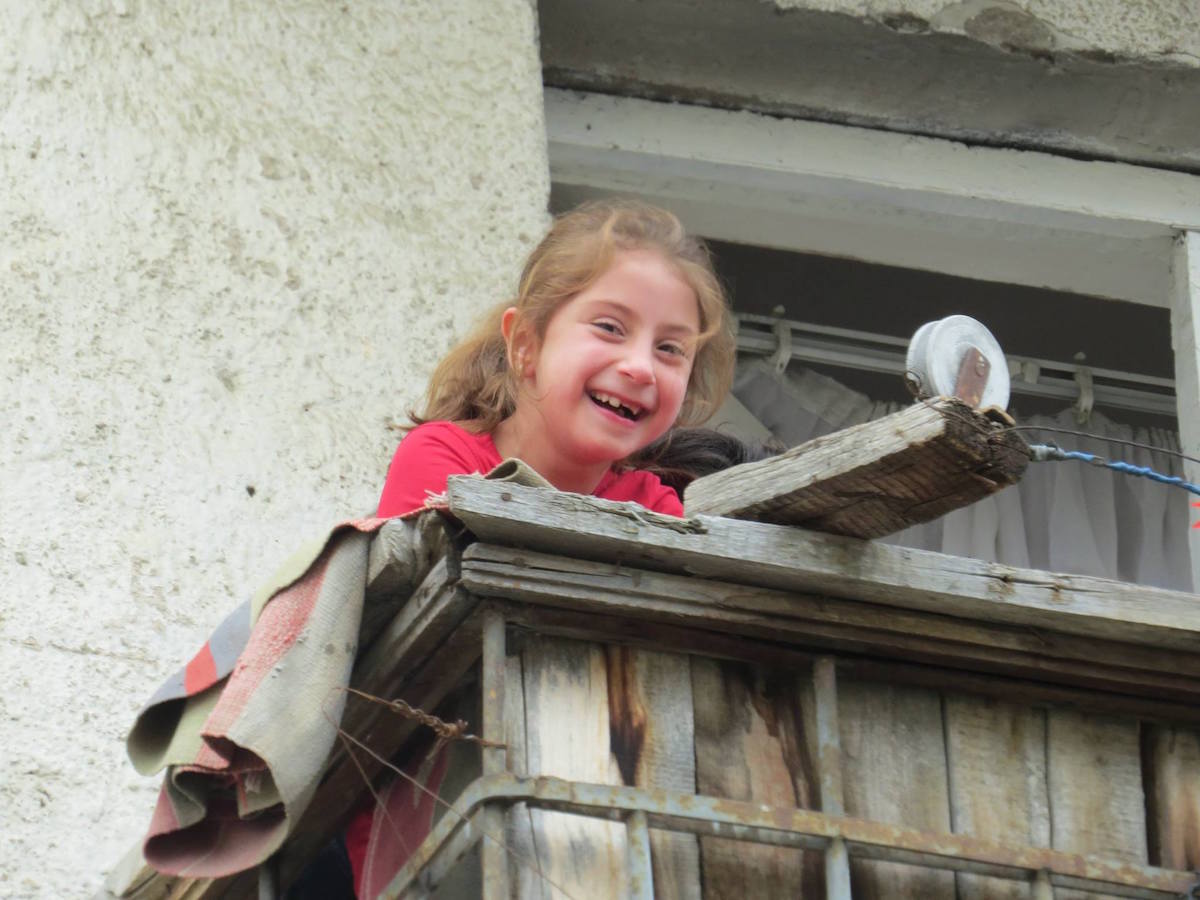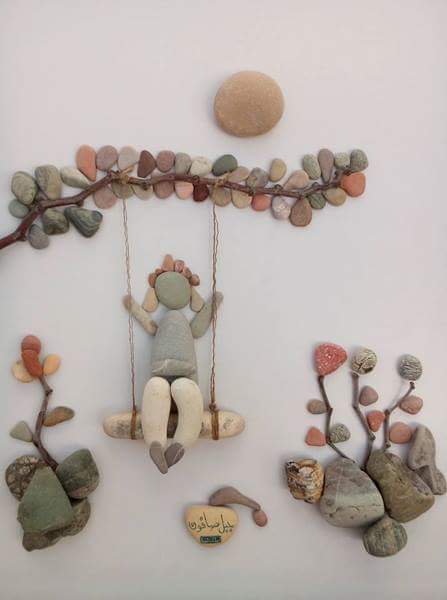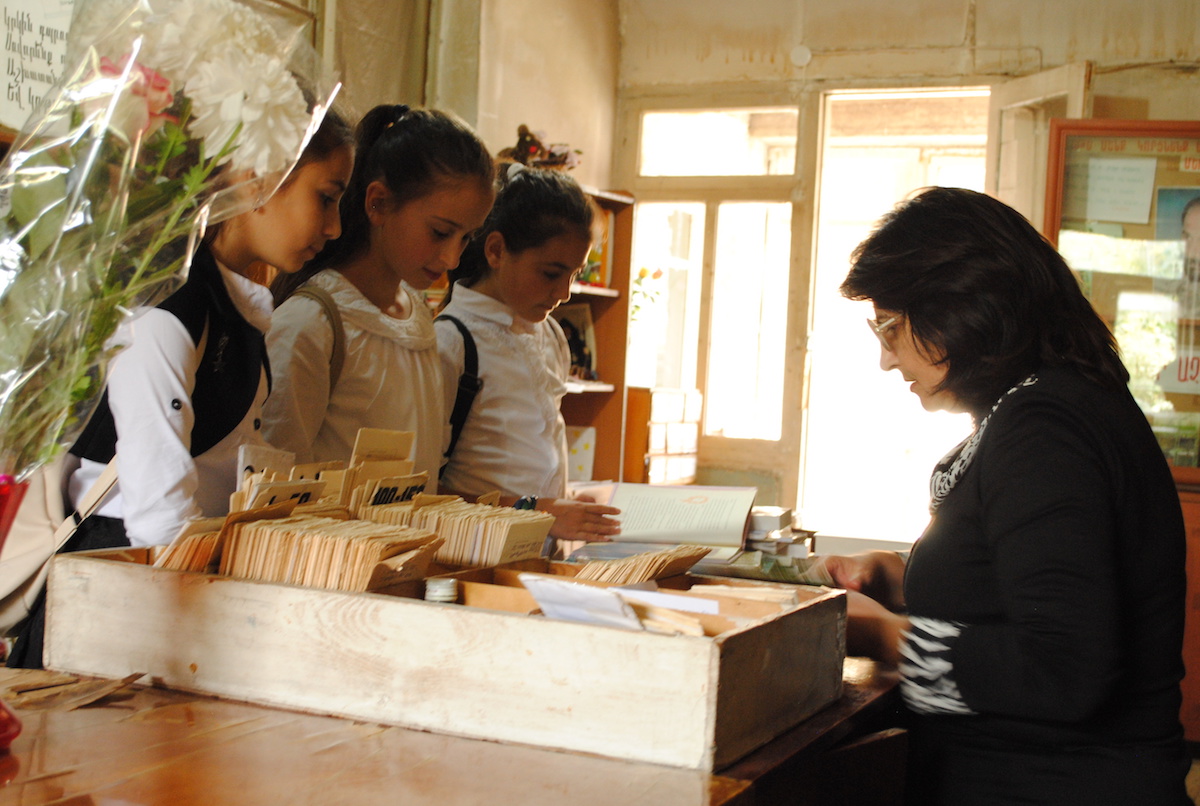Girls are not supposed to work
Photo by Hayk Barseghyan
The question is simple: what rights, possibilities and perspective women in Karabakh have, how they identify themselves?
The answer does not come easy. Despite the complexity of the context, conversations with women, men, experts and officials responsible for gender policy, lead one to the conclusion, that home, husband and children is all, women in Karabakh should care about.
The question is simple: what rights, possibilities and perspective women in Karabakh have, how they identify themselves?
The answer does not come easy. Despite the complexity of the context, conversations with women, men, experts and officials responsible for gender policy, lead one to the conclusion, that home, husband and children is all, women in Karabakh should care about.
Violence without violence
There is a number of women among the officials in Karabakh, even substantial at times. Four women in recent years have become ministers (justice, culture, social care, town planning).
These women are visible. The others have to stick to different rules and traditions. University education for daughters, wives and daughters-in-law is considered a value, the sing of prestige. But a job, full-time employment and a career need to be approved by husband. Even if the reaction is positive, the woman should never forget, that home and family come first.
“Such an attitude is violence in itself. But many women do not even realize it, understanding violence as beatings and sometimes murders, says Gayane Ambartsumyan, the director at the Resource Center for Women.
At the discussions and trainings, held by the organization, some inquire, whether violence necessarily means rape. And they are reluctant to concede, that they are being subjected to violence, telling their stories in third party.
Physical violence
Women in Karabakh are often being beaten. Wives commonly justify their husbands behavior by the fact, that “he was simply drunk.
“Rapes often happen repeatedly. And war “heritage serves as an explanation for home violence, Geganush Safaryan, the psychologist at the Republican Medical Center, claims.
“Many men have received contusions during the war, which poses another serious problem. They suffer from nervous breakdowns – and beat their wives.
Sometimes it is not a husband, but a mother-in-law, who beats a woman. Inna Petrosyan, the psychologist at the Mother and Child Health Center in Stepanakert, cannot forget the mother-in-law pushing the woman into the room. She wanted to stay and listen, which I naturally did not let her do. After the mother-in-law was gone, the woman told, that she was under pressure to have an abortion.
The reason was, that there were already two girls in the family, and the-mother-in-law wanted a boy, making the daughter-in –law to have abortions.
Job means home
More often than not women in Karabakh are prohibited from working by their husbands.
“My husband has a job, and I take care of home and family. He forbids me to work elsewhere, Juliet, 43 told us.
Armine, 35, married for almost 20 years, claims she was allowed to find a job just a couple of years ago. “With kids becoming older and expenditures growing he had to let me find a job – his income was obviously insufficient.
In some cases young daughters-in-law were made to leave university or study in absentia. This is a common case with the student marriages.
The law was passed in Karabakh several years ago, allowing marriages at 17 and even 16, under the condition of parental consent and one of the two being already 18. Which means, that it is legal, when young women marry while still at school, and may leave it unfinished under pressure from their husbands and fathers.
After 4-5 years of marriage women come to regret the fact that they had been deprived of the right to education, Geganush Safaryan from the Republican Medical Center says.
“The husband did not let me have education, that is what I hear often
Women in charge
The exceptions to the practice though occur. In some families the women are free to choose a job and make a career.
There is only one female minister in Karabakh now. 5 out of 33 parliament members are women. None out of 7 administrative districts is headed by a woman and never has been.























